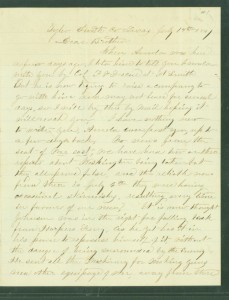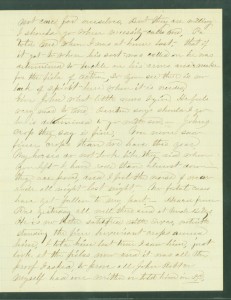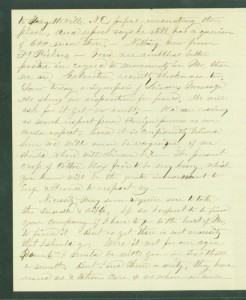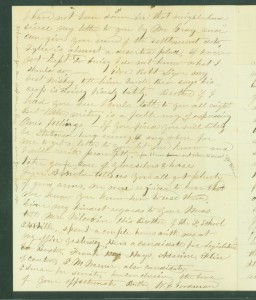Cotton
History of Cotton

The American South is known for its long, hot summers, and rich soils in river valleys making it an ideal location for growing cotton. By 1860, Southern plantations supplied 75% of the world’s cotton, with shipments from Houston, New Orleans, Charleston, Mobile, Savannah, and a few other ports.
The insatiable European demand for cotton was a result of the Industrial Revolution which created the machinery and factories to process raw cotton into clothing that was better and cheaper than hand-made product. European and New England purchases soared from 720,000 bales in 1830, to 2.85 million bales in 1850, to nearly 5 million in 1860. Cotton production renewed demand for slavery after the tobacco market declined in the late 18th century. The more cotton grown, the more slaves were needed to pick the crop. By 1860, on the eve of the American Civil War, cotton accounted for almost 60% of American exports, representing a total value of nearly $200 million a year.
Cotton’s central place in the national economy and its international importance led Senator James Henry Hammond of South Carolina to make a famous boast in 1858:
“Without firing a gun, without drawing a sword, should they make war on us, we could bring the whole world to our feet… What would happen if no cotton was furnished for three years?… England would topple headlong and carry the whole civilized world with her save the South. No, you dare not to make war on cotton. No power on the earth dares to make war upon it. Cotton is king.”
Southern capitalists sank money into cotton rather than factories or land. More precisely, they invested in slaves; the average slave owner held almost two-thirds of his wealth in slaves in 1860, much less than he held in land.
King Cotton” as a slogan summarized the strategy used before the American Civil War of 1861–1865 by pro-secessionists in the Southern States to claim the feasibility of secession and to prove there was no need to fear a war with the Northern States. The theory held that control over cotton exports would make a proposed independent Confederacy economically prosperous, would ruin the textile industry of New England, and—most importantly—would force Great Britain and perhaps France to support the Confederacy militarily because their industrial economies depended on Southern cotton. The slogan, widely believed throughout the South, helped in mobilizing support for secession: by February 1861, the seven states whose economies were based on cotton plantations had all seceded and formed the Confederacy (C.S.A.). Meanwhile, the other eight slave states, with little or no cotton production, remained in the Union.
To demonstrate the alleged power of King Cotton, Southern cotton-merchants spontaneously refused to ship out their cotton in early 1861; it was not a government decision. By summer 1861, the Union Navy blockaded every major Confederate port and shut down over 95% of exports. Since the British mills had large stockpiles of cotton, they suffered no immediate injury from the embargo; indeed the value of their stockpiles soared. For Britain to have intervened would have meant war with the U.S. and a cut-off of food supplies. About one fourth of Britain’s food supplies came from the United States, and American warships could destroy much of British commerce, while the Royal Navy was convoying ships full of cotton. The British never believed in “King Cotton”, and they never intervened. Consequently, the strategy proved a failure for the Confederacy—King Cotton did not help the new nation, but the blockade prevented earning desperately-needed gold. Most important, the false belief led to unrealistic assumptions that the war would be won through European intervention if only the Confederacy held out long enough.
After the war ended in 1865, the future of cotton land remained under white southern control. Northern Republican businessmen were firmly opposed to confiscation of lands from southern plantation owners and actively supported the resumption of cotton production by means of large plantations under the management of landowners.
Therefore, the stage for Reconstruction was set. The economic importance of cotton had not diminished after the war. In fact, the federal government and northern capitalists were well aware that restoration of cotton production was critical to the financial recovery of the nation. Cotton exports were needed to help reduce the huge federal debt and to stabilize monetary affairs in order to fund economic development, particularly railroads.
America regained its sought-after position as the world’s leading producer of cotton. By 1870, sharecroppers, small farmers, and plantation owners in the American south had produced more cotton than they had in 1860, and by 1880, they exported more cotton than they had in 1860. For 134 years, from 1803 to 1937, America was the world’s leading cotton exporter.
Slavery and Cotton Production
YEAR | NUMBER OF SLAVES | COTTON PRODUCED(Bales) |
| 1790 | 750,000 | 3,000 |
| 1800 | 1,000,000 | 75,000 |
| 1810 | 1,375,000 | 178,000 |
| 1820 | 1,775,000 | 335,000 |
| 1830 | 2,325,000 | 732,000 |
| 1840 | 2,875,000 | 1,348,000 |
| 1850 | 3,650,000 | 2,136,000 |
| 1860 | 4,450,000 | 3,841,000 |
DISCUSSION QUESTIONS:
- Where was cotton grown? Why in that region?
- How did it affect the economic and free enterprise system in the North, South, and England?
- How did this product contribute to the cause of the Civil War?
Goodman Letter
This transcription was copied from the original document and is representative of all spelling, punctuation, and grammar as written by the creator. The original document is housed in the Pearce Civil War Collection, Pearce Collections Museum, Navarro College, Corsecana, Texas. https://www.PearceMuseum.com
Tyler Smith Co Texas July 14th 1861
Dear Brother
When Arnold was here a few days ago I told him to tell you I would write you by Col FF Foscue at Ft. Smith But he is now trying to raise a company to go with him and may not leave for several days, so I will try this by mail hoping it will reach you I have nothing new to write you, Arnold can post you, up to a few days back, No news from the seat of War east, we have heard two or three reports about Washington being taken but they all prove false, and the reliable news from there is July 6th they were having occasional skirmishes resulting every time in favour of our men, It is now thought Johnsen was in the right for falling back from Harpers Ferry as he yet has it in his power to repossess himself of it without the danger of being surrounded by the enemy He sent all the machinery for making guns and other equipage of war away from there to Fayetteville N.C. before evacuating the place, and report says he still has a guerisen of 600 men there, Nothing new from Ft Pickens, You are doubtless better posted in regard to movements in Mo. than we are Galveston recently blockaded too I saw today a synopsis of Leincons Message He shows no disposition for peace He will ask for it yet no doubt We are receiving as much respect from Foreign powers as we could expect, Arnold it is confidently believed here we will soon be recognized if we should where will Leincen be? The present crop of cotton being fair to be very heavy which you know will be the greater inducement to Eng. & France to respect us…….
……. In conclusion the love of your affectionate Brother,
W.J. Goodman
Whenever you can drop me a line, sure, ever your brother Wm

Goodman Letter, pg 1

Goodman Letter, pg 2

Goodman Letter, pg 3

Goodman Letter, pg 4

